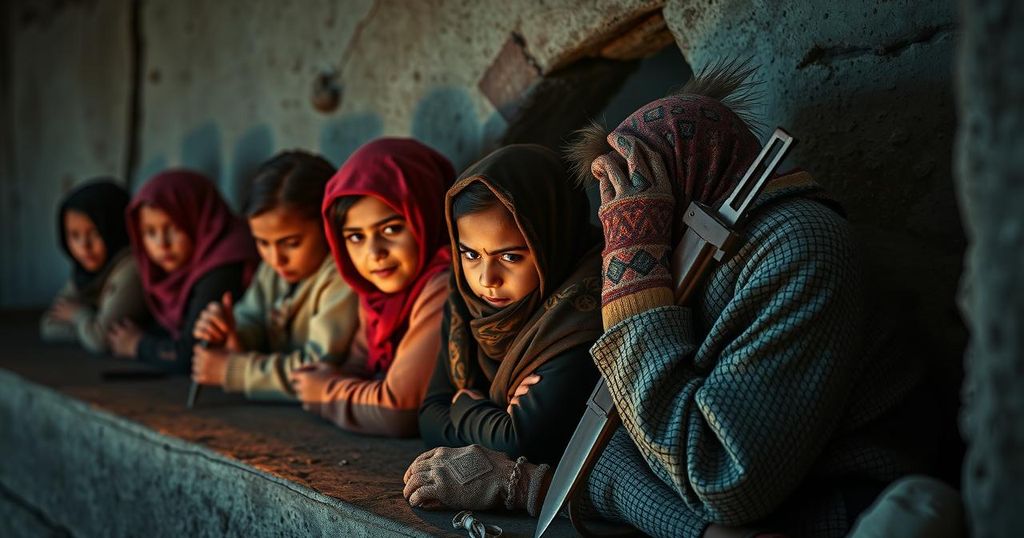The Syrian civil war has resulted in significant suffering, with thousands imprisoned and many missing. Notable stories include Mazen al-Hamada, tortured for protesting, Rania al-Abbasi, who disappeared with her family after a humanitarian act, and Tal al-Mallouhi, detained as a teenager for her online writings. Their accounts highlight the brutality of the Assad regime and the ongoing quest for justice and accountability.
The Syrian civil war, now extending over 13 years, has seen the suffering of countless individuals, particularly those who have been imprisoned by the regime of President Bashar al-Assad. In recent developments following the regime’s apparent collapse, families have rushed to locate their missing loved ones, revealing deeply harrowing stories. Thousands have emerged from the regime’s notorious detention centers, yet many remain unaccounted for, with estimates indicating that up to 100,000 individuals may have perished while in custody.
Among the most poignant accounts is that of Mazen al-Hamada, an activist who was subjected to extreme torture after being arrested during protests in 2012. His story, which has resonated widely, illustrates the brutality of the regime and the desperate hope for justice. Upon release, al-Hamada sought safety in the Netherlands, where he became an outspoken critic of the Assad regime. Nonetheless, the disillusionment with inaction from the international community led him to return to Syria in 2020, under false pretenses, only to be disappeared again. After his remains surfaced, he became a symbol of the regime’s ongoing violence even in the face of its decline.
The plight of Rania al-Abbasi also resonates, as she and her family were arrested in 2013 following a humanitarian act. Her sister has tirelessly campaigned for their release, but their fate remains unknown, highlighting the plight of approximately 100,000 families searching for missing individuals. Each day that passes brings a greater sense of despair for Naila al-Abbasi, as the absence of information inflicts unimaginable pain.
Another notable story is that of Tal al-Mallouhi, who was detained as a teenager for her blog expressing political views. After a long separation from her mother, her release came only after international pressure. Although she has returned, the scars of her imprisonment are yet to be reconciled with the socially liberated world she finds herself in today.
The ongoing Syrian civil war has resulted in profound humanitarian crises, including arbitrary detentions and enforced disappearances orchestrated by the Assad regime. This conflict has claimed nearly half a million lives and left countless families searching for their loved ones who have disappeared into government-run prisons. As the regime faces turmoil, the stories of survivors and victims alike raise urgent calls for justice and accountability amidst the chaos. Many families continue to suffer from a lack of information, grappling with the trauma of an uncertain fate for their loved ones.
The anguish experienced by the families of Syria’s tortured prisoners reflects a broader tragedy that transcends individual stories. As the Assad regime experiences significant upheaval, the tales of Mazen al-Hamada, Rania al-Abbasi, and Tal al-Mallouhi illustrate both the extreme brutality exerted by state authorities and the ongoing struggle for justice. These narratives underscore the need for continued advocacy on behalf of the victims and the pursuit of accountability, as the quest for truth remains paramount in the aftermath of war.
Original Source: edition.cnn.com






